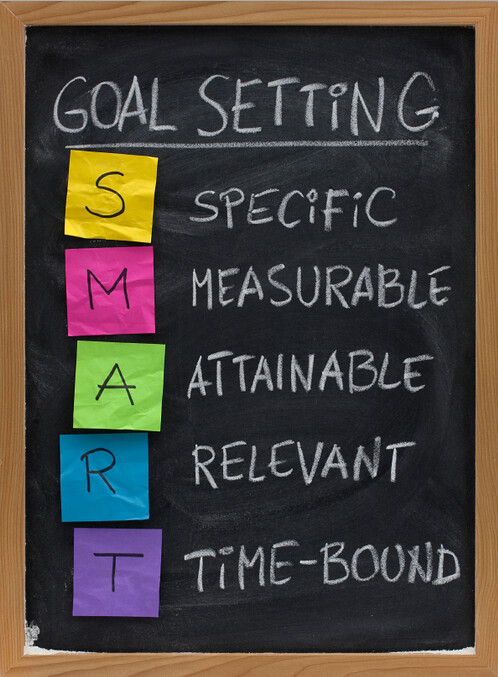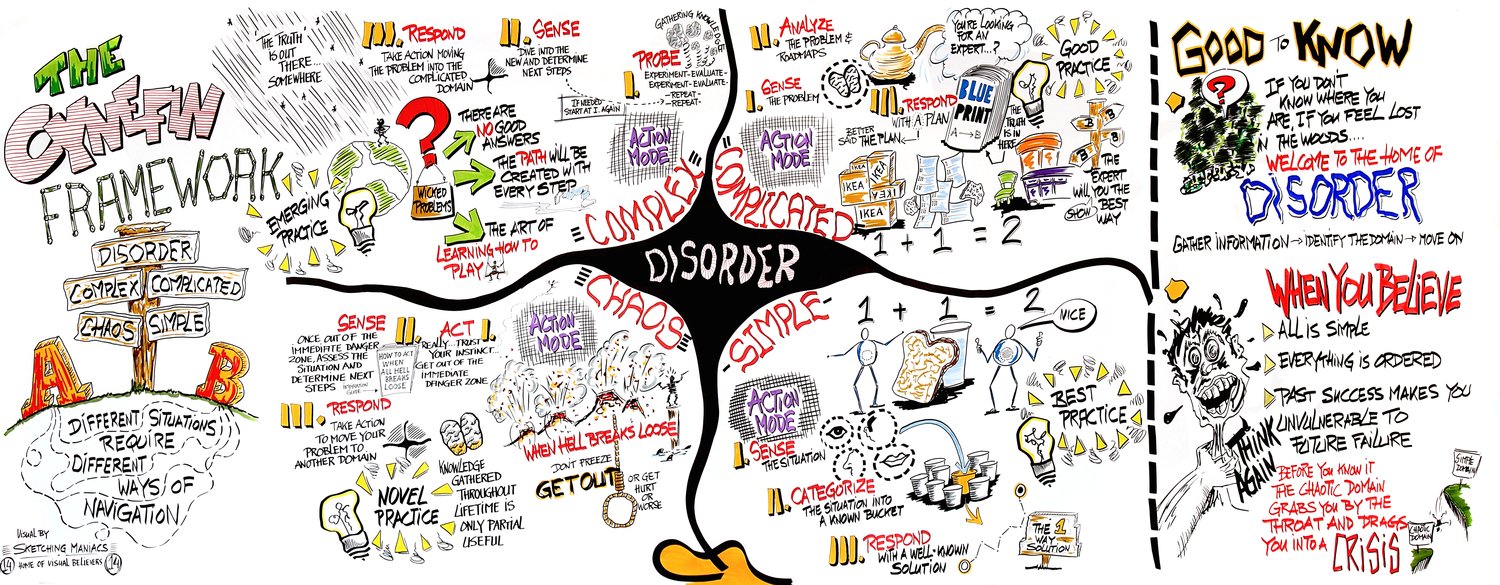 |
| SMART goals are: source |
I'm breaking up with SMART goals. Over time, our relationship has become increasingly strained, officially reaching breaking point over the past week. Let me explain...
Specific: Ask a room of professional adults whether their job has become increasingly complex over the past fifteen years and the majority will put up their hands. Many academics, consultants and more agree that this is the case - Jennifer Garvey Burger, Ziauddin Sardar, Dave Snowden are just some of my favourites. The thing about complexity though, is that it is unpredictable, what worked today will not necessarily work tomorrow, and there is no linear cause and effect (if you haven't yet, I highly recommend digging into complexity theory and thinking). Sean Snyder captures the idea of complexity with some simple examples in his OECD paper - The Simple, the Complicated, and the Complex: Educational Reform Through the Lens of Complexity Theory.
 |
| Comparing the simple, complicated and complex: source |
 |
| Cynefin Framework: source |
Measurable: "Not everything that counts can be counted, and not everything that can be counted counts" - William Bruce Cameron. Not everything that matters can be measured, and not everything that can be measured, should. The thing about measurement is that it first requires a standardised measure. For distance it might be centimetres or kilometre. For economics, it's money, GDP. For education, it's usually achievement data - national standards and NCEA targets. And of course, we measure so that we can determine growth, in fact, we live in a world obsessed with growth, despite it's limitations as Martin Kirk explains in his article for Aeon; "The problem is, GDP doesn’t care about the environment or human suffering; they are irrelevant ‘externalities’. In fact, GDP actively rewards destruction of the environment, which by short extensions produces, rather than eliminates, poverty, especially for those already impoverished or at risk of so being"
What might my goals look like if I stopped thinking in terms of growth, but rather thought about transformation? Can I even think my way out of the the mindset where everything is about growth? After all, I've been socialised into this growth mindset...
Attainable: If we only set out to achieve 'attainable' goals, what does that do for those people in the world who are already disempowered? Will they continue to have low expectations of themselves? But also, if we only ever set attainable goals, would Steve Jobs have set out to "make a dent in the universe"? Would we have Richard Bransons, Bill Gates, Martin Luther King? To quote Nelson Madela - “It always seems impossible until it’s done.”
In setting goals, we often filter out, intentionally and unintentionally, those things that do not help us attain our goals. But, how many opportunities pass us by because we have set our filters too small? What if opportunity allows us to surpass our attainable goal but we don't see that opportunity because our filters are set on what we perceive as attainable?
Realistic and sometimes Relevant: I think we have established how I feel about realistic... But lets tackle relevant. Relevant is often associated with questions such as whether a goal ties into my key responsibilities, whether it ties in with my long term plans, or whether a goal is consistent with my other goals. Frankly, I feel that relevant seems to take all the play, and hence all the fun, out of goals. And then, as if the fun hasn't been squished enough, we then throw in that 'responsibilities' word! Why must my goals be tied to my responsibilities only? I suspect Google's 20% time laughs in the face of the relevant - sometimes a project starts as irrelevant and becomes relevant as we learn more.
Of course, we could also add the complexity lens to this. What if I work in a space where the future is genuinely unknown? How can I know what my long term goals might be? Or where my responsibilities are not clear, either because I'm in one of those 'evolving' roles, because I'm starting a new role from scratch, or because I have decided, even though it's not officially my responsibility, to take on an objective? Having KiwiFoo at the top of my mind from last weekend, I think about all those people tackling immense problems in the world, outside of their job/work, not because it is their responsibility, but simply because they care.
Time bound: Well... Obviously we have a problem here. How often has life gotten in the way of your plans? How often have you had to extend the timeline on a goal? By setting a goal that is time bound, does that set us up to fail from the word go? And also, further to my point about play and fun, time bound suggests that I need a schedule, and that doesn't do a whole lot of good to the fun sucking image of the SMART goal.
Of course, a truly aspirational, ambitious goal might also have a timeline that dwindles into the complex space of the unknown. I wonder if Ghandi set a goal like on this date, by this year, we will have... Of course, there is also the idea of the Red Queen to throw in here; "Now, here, you see, it takes all the running you can do, to keep in the same place. If you want to get somewhere else, you must run at least twice as fast as that!" - Lewis Caroll. If we have a goal like future focussed education, we can not just have a deadline, because as soon as we have arrived, we will have been left behind.
So what?
Perhaps I have made some faulty assumptions about SMART. Perhaps SMART goals are for managing technical difficulties in life, things that are specific, do work within the cause and effect realms of the world. Those things in the simple and even the complicated space. Perhaps SMART goals, much like many other buzz words in society, have exploded beyond it's original context, and have turned into a ghost of its former self. Perhaps, SMART goals were only ever intended for the technical challenges in our lives, rather than the adaptive or emergent. Maybe there is a key critical distinction to make; SMART goals are for the simple, maybe even complicated problems. They are not however for the complex.

I wanted to say that it's official, I am breaking up with SMART goals, however, it seems that our relationship has headed into the complicated. The space of best practice, and expertise, where I draw on the SMART goal with careful consideration of both it's strengths and limitations. All in all, a much more comfortable place to be.

ReplyDeleteDr. Obodo was so helpful and made sure to do whatever he could to help me. I highly recommend him and his spell for help info
( templeofanswer@hotmail.co.uk , whatsapp +234 8155 425481 )